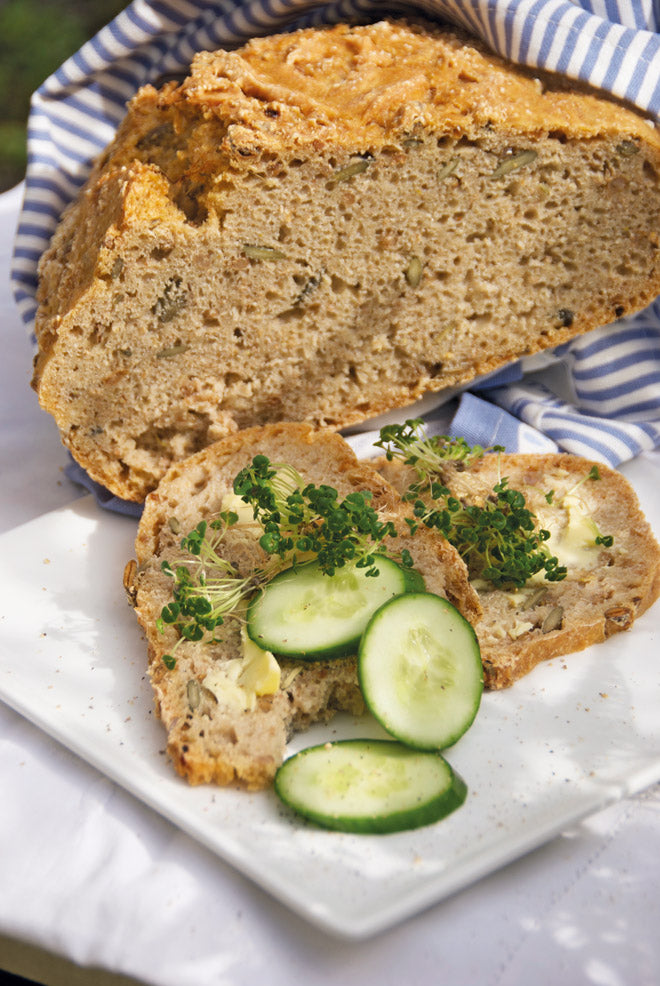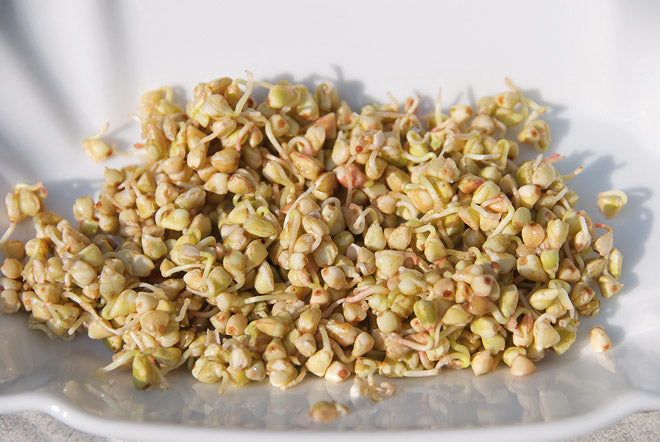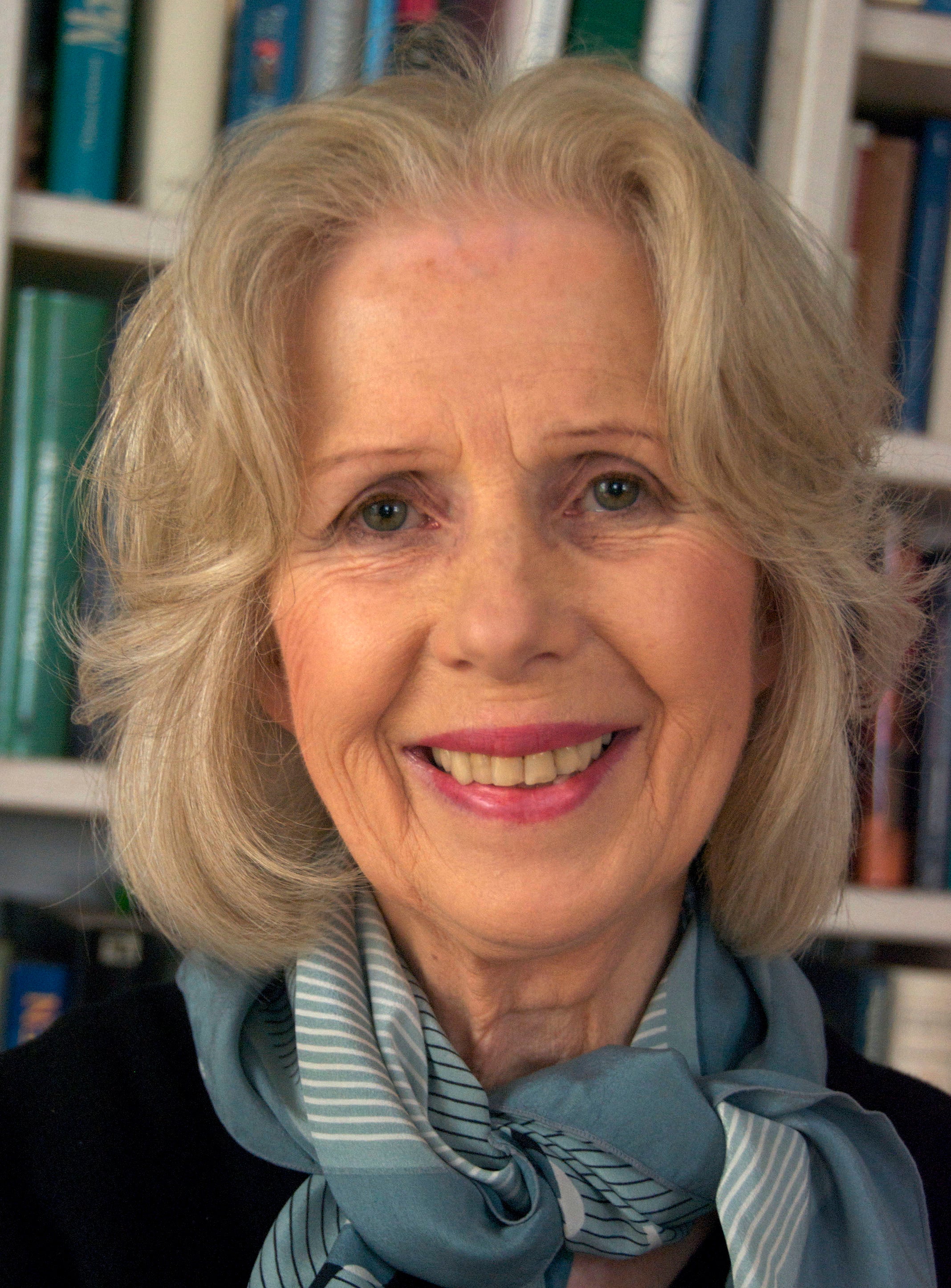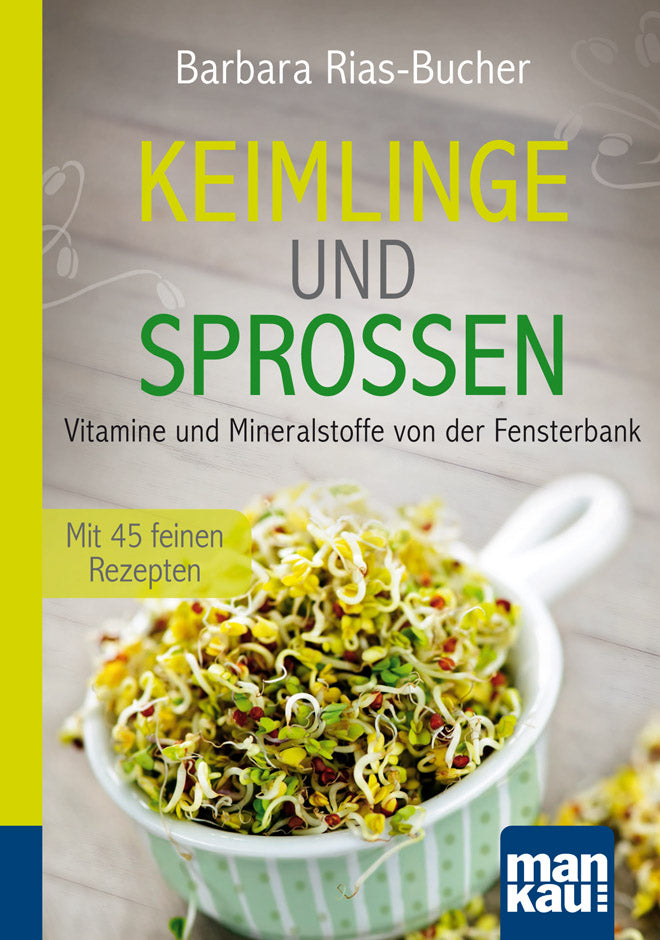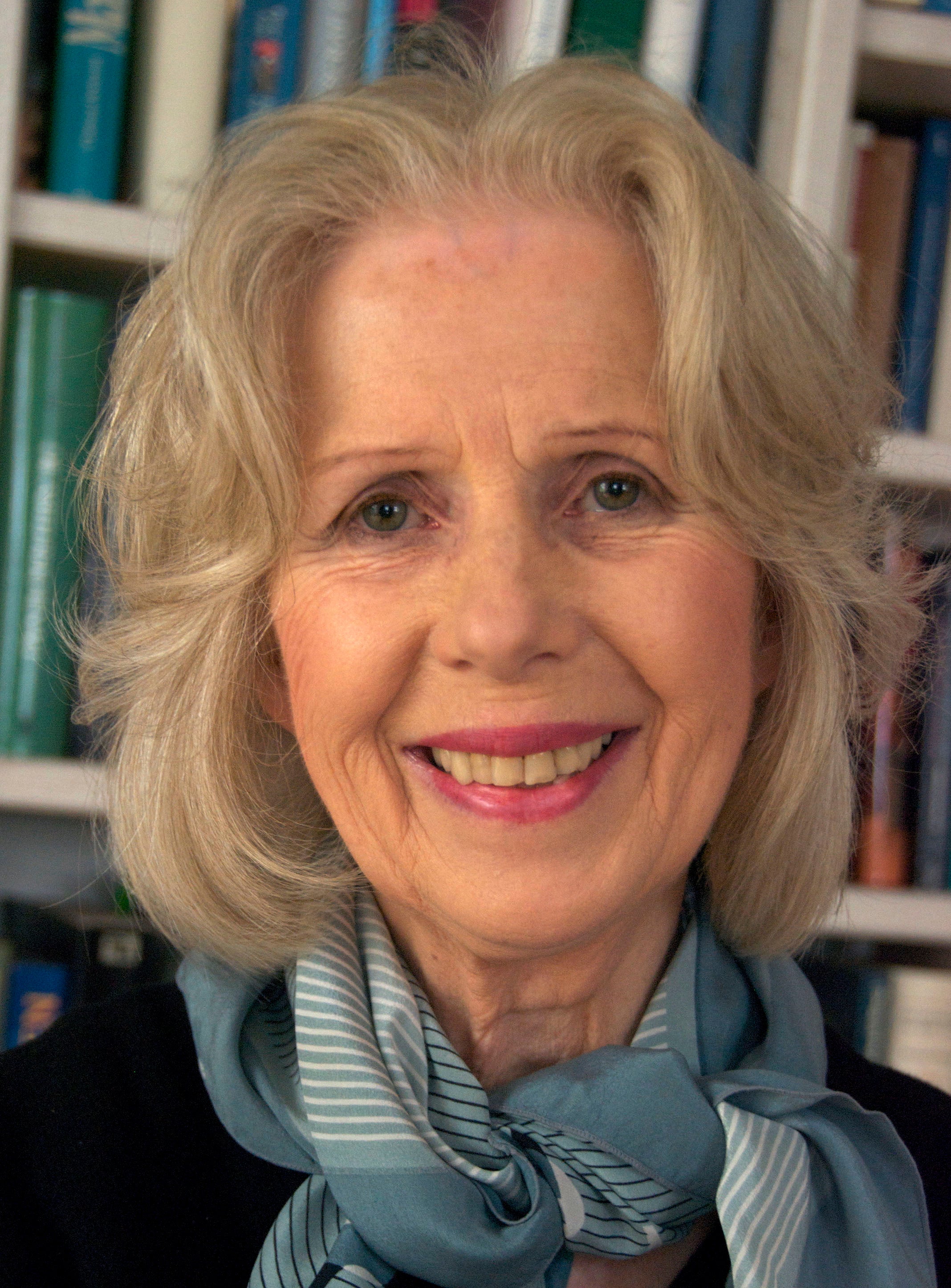
“Harvest a treasure trove of vitamins and minerals – easily on your windowsill!”
“Harvest a treasure trove of vitamins and minerals – easily on your windowsill!”
Interview with the renowned nutrition expert Dr. Barbara Rias-Bucher on "Sprouts and Germs "
"During the germination process of plant seeds, the vitamin and nutrient content is at its highest: germs and sprouts provide us with plenty of vitamin C, B vitamins, bioactive substances, phosphorus, iron, carbohydrates, fat, protein and lots of fiber. Therefore, their value for our health should not be underestimated, especially in the winter months or in vegetarian/vegan lifestyles."
The renowned nutrition expert Dr. Barbara Rias-Bucher, author of the compact guide “Seedlings and Sprouts”, has compiled all the important information for the selection and correct cultivation of valuable sprouting seeds as well as a variety of fine, tasty recipes and suggestions.
You have been involved with wholesome and vegetarian nutrition for many years. What role do sprouts and germs play in this diet?
Barbara Rias-Bucher: First and foremost, they provide us with vitamins, especially in the cold season when there is less fresh produce; the vitamin content increases significantly during the germination process of the seeds. Sprouts are rich in vitamin C for the immune system and provide B vitamins, which we must consume regularly because we cannot store them in our bodies. It is also very important that sprouts provide us with a lot of fiber, which also supports our immune system. The "good" bacteria in our large intestine feed on fiber, gain energy from it and multiply. And this digestive process produces special fatty acids that play an important role in cancer prevention.
What is the difference between seedlings and sprouts, and why are there different names?
Barbara Rias-Bucher: The term "germs" refers to the seeds that have been opened and have a visible stem and two leaves - the cotyledons -, while "sprouts" refers to the young, tiny plants that can already bear fine roots. The fact that the terms are often used differently or indiscriminately is the case with many foods: sugar snap peas, for example, should actually be called "sugar pods" because they are not pods but pulses. But our everyday language does not care about such subtleties.
Which seeds can you use to grow seedlings and sprouts yourself, and which seeds are particularly suitable for growing your own sprouts on the windowsill? Which varieties are difficult to grow or are they even impossible to grow?
Barbara Rias-Bucher: Peas, lentils, mung beans, radishes and sunflower seeds are particularly easy and ideal for your first attempts at sprouting: all of them germinate and grow quickly, in any sprouting container. Others take a very long time, such as chia, linseed or red clover. Rocket and cress produce a lot of mucus; they therefore germinate and grow best in a bowl of soil. Beetroot seeds for sprouting are unfortunately difficult to obtain - although their bright colour makes them a real feast for the eyes - and grains must not be dried because they will then no longer be able to germinate - this also applies to green spelt, dried spelt harvested when unripe. And a few plant seeds are not suitable for sprouting at all: I have not yet managed to germinate sesame, rice or millet.
The seeds already contain all the nutrients needed for the later development and growth of the plants. What makes the germinated seeds so valuable for human nutrition ?
Barbara Rias-Bucher: Plant seeds contain a complex nutrient tissue that is activated during the germination process to supply the plant until it can generate its own energy through photosynthesis. We also benefit from this nutrient substance: during germination and sprout growth, the concentration of bioactive substances, protein, fat, carbohydrates and fiber is at its highest; in addition, the bioavailability of the minerals in the seeds increases, so that we can absorb more of them through the intestinal mucosa during digestion and use them in the body's cells.
Vegetarians and vegans in particular benefit from sprouted vegetables. Which ingredients in the sprouts and germs are important for a meat-free lifestyle?
Barbara Rias-Bucher: First and foremost, of course, those that are otherwise found mainly in animal foods: calcium, as in dairy products, or iron, as in meat, but especially in liver. Sprouts and sprouts also contain precisely these minerals. They also provide us with magnesium for the function of our muscles and nerves, zinc for the acid-base balance, and phosphorus for the energy utilization from our food. Germinated seeds, sprouts and sprouts are still among the most underrated foods in vegetarian cuisine, although they make our modern, light, plant-based cuisine extraordinarily diverse: depending on which seeds you choose and how long you let the plants grow, you can mix them into salads, prepare wok dishes, or season soups. In winter, when I hardly have any home-grown vegetables available, I use sprouts, for example from lentils, radishes or buckwheat, because these plants grow quickly and luxuriantly. Cress, mustard and radish sprouts from your own windowsill provide you with many more micronutrients than commercially available herbs, are healthier and free from pollutants.
Depending on their origin, germinated seeds, sprouts or sprouts also have different taste or health properties. In which dishes is it best to use the different variants?
Barbara Rias-Bucher: You will find lots of suggestions and all the necessary information in my book, first in the portraits of the individual plants, then in the recipes. I always tailored the preparations to the respective seedlings or sprouts. Here are just three examples: fenugreek with its curry flavor goes wonderfully with Asian dishes, I baked apple pie with nutty wheat or spelt sprouts, and spicy mustard sprouts taste delicious with scrambled eggs or fried salmon.
Since the EHEC scandal a few years ago, sprouts have also been considered a risk factor for the spread of germs and related diseases. What special considerations must be taken when growing sprouts and when storing and using them?
Barbara Rias-Bucher: The most important thing is hygiene, because germs are almost always contained in the seeds. But this only harms us if these germs multiply rapidly due to improper handling. Therefore, you must be even more careful when growing sprouts than you are used to when cooking. You must rinse the seeds, seedlings and sprouts under running water at least twice a day, then drain them well: the sprouted material must not lie in water! If it smells musty or you notice mold, there is only one thing to do: throw it away! When preparing it, you must rinse the seedlings and sprouts carefully, just like herbs. People with sensitive digestion should only eat sprouts and sprouts when they are cooked. It is sufficient if the seedlings are boiled vigorously once or fried in a wok with other ingredients. Pregnant women, small children and the very elderly should avoid germinated seeds, seedlings and sprouts, while they can eat sprout greens - like lettuce and herbs - without worry.
If you don't want to go to the trouble of growing your own, you can also buy fresh sprouts from a retailer. Who is the best person to contact, and what should you think about frozen goods, for example?
Barbara Rias-Bucher: Frozen goods are out of the question for me - frozen and then thawed sprouts don't taste good. You can only freeze germinated seeds, but you can't get them in stores. If necessary, you can buy fresh sprouts in health food stores; pay attention to the expiration date and trust your eyes: the sprouts must look fresh, without brown stems, wilted or even rotten leaves. But as the instructions in this book show, growing sprouts is very quick and very easy. And if I don't get around to it, I just do without for a few days.
Book tip:
Barbara Rias-Bucher: Germs and sprouts. Compact guide - vitamins and minerals from the windowsill. Mankau Verlag, 1st edition January 2017, paperback, full color, 11.5 x 16.5 cm, 127 pages, 8.99 euros (D) / 9.20 euros (A), ISBN 978-3-86374-364-2.
Link recommendations:
More information about the guide "Seedlings and sprouts"
To the reading sample in PDF format
More about Barbara Rias-Bucher
To the Internet forum with Barbara Rias-Bucher
